סדור לחול לשבת וליום טוב Ritual de Oraciones para Todo el Año (1965) is a bilingual Hebrew-Spanish prayerbook for the entire year compiled and translated by Rabbi Marcos Edery z”l, and published by the World Council of [Conservative/Masorti] Synagogues under the supervision of Rabbi Marshall T. Meyer (1930-1993). Besides the liturgy of the siddur, this prayerbook includes essays concerning prayer by 20th century scholars in Spanish translation, such as Rabbi Abraham Joshua Heschel and Israel Abrahams.

This work is in the Public Domain in the United States by treaty according the Uruguay Round Agreements Act (1994), 50 years having passed since its publication in Argentina (the general term of copyright for works published between 1957 and 1997).
Source (Translation) Translation (English)
[Director para Latinoamérica del Consejo Mundial de Sinagogas]
[Director for Latin America of the World Council of Synagogues]
Source (Translation) Translation (English)

“📖 סִדּוּר לְחֹל לְשַׁבָּת וּלְיוֹם טוֹב (אשכנז) | Ritual de Oraciones para Todo el Año, a bilingual Hebrew-Spanish siddur compiled and translated by Rabbi Marcos Edery (Masorti Olami, 1965)” is shared through the Open Siddur Project with a Creative Commons Public Domain Dedication 1.0 Universal license.
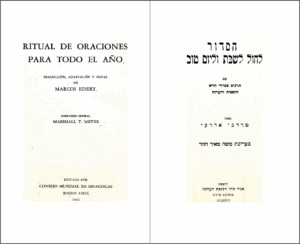
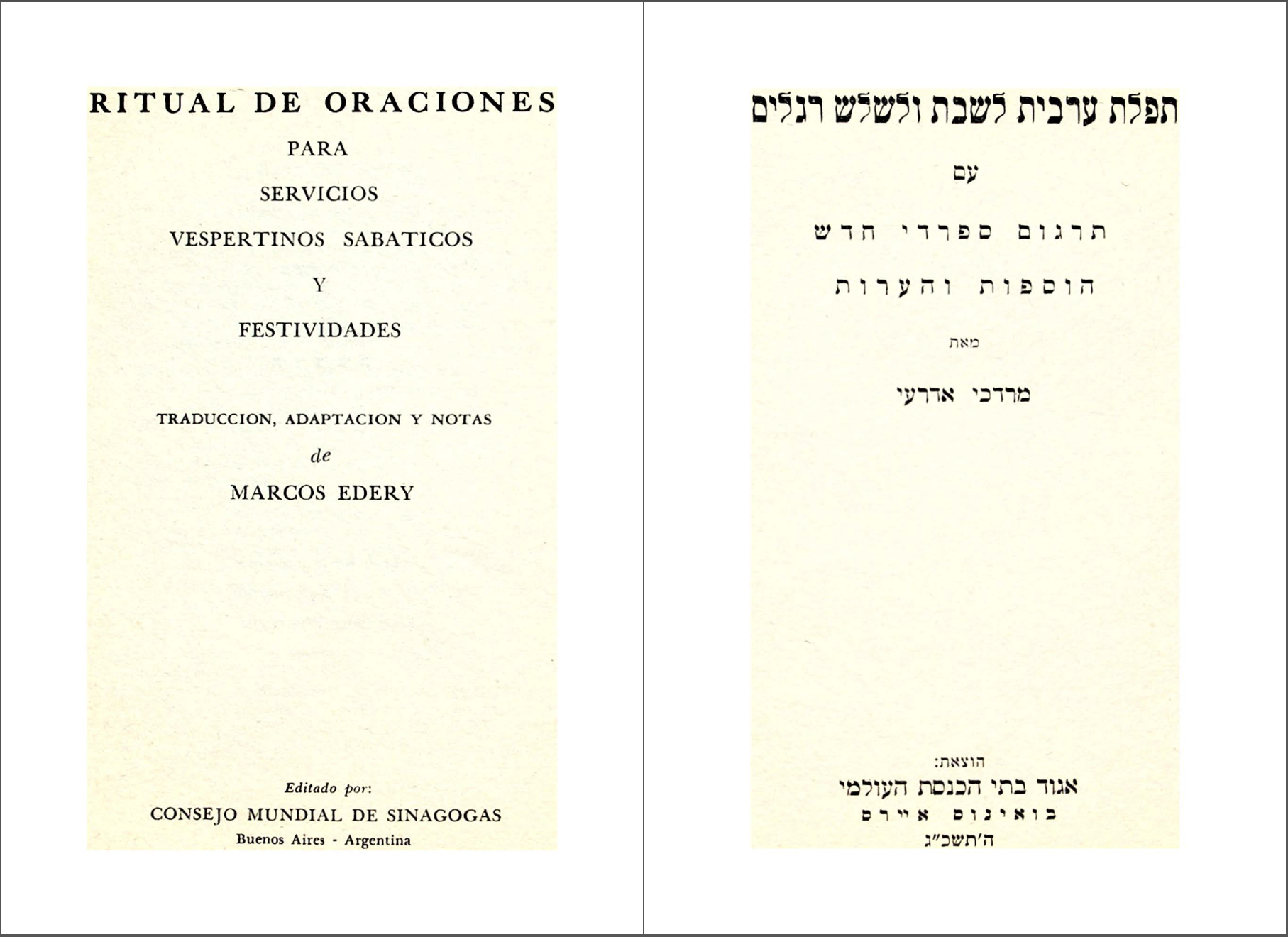
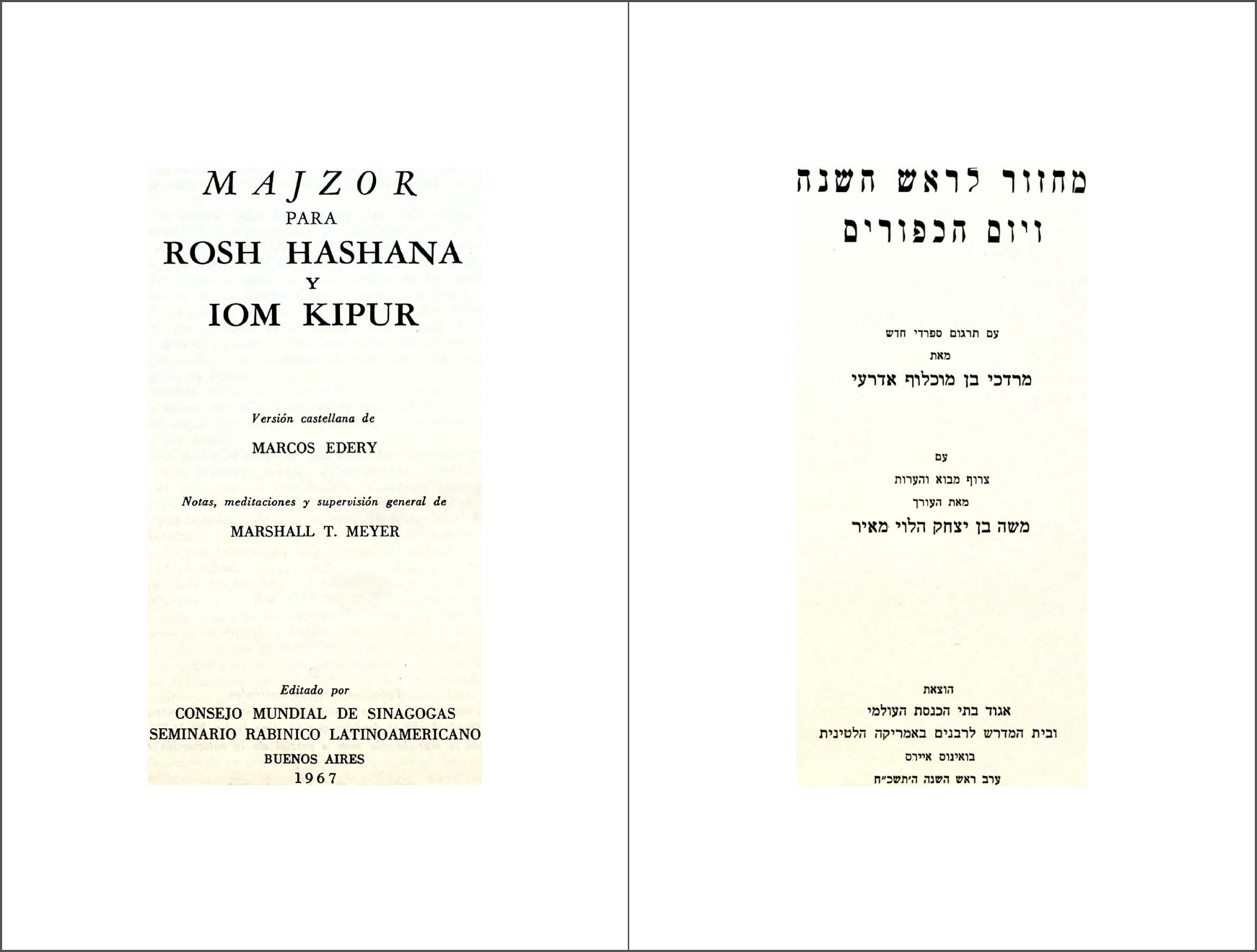
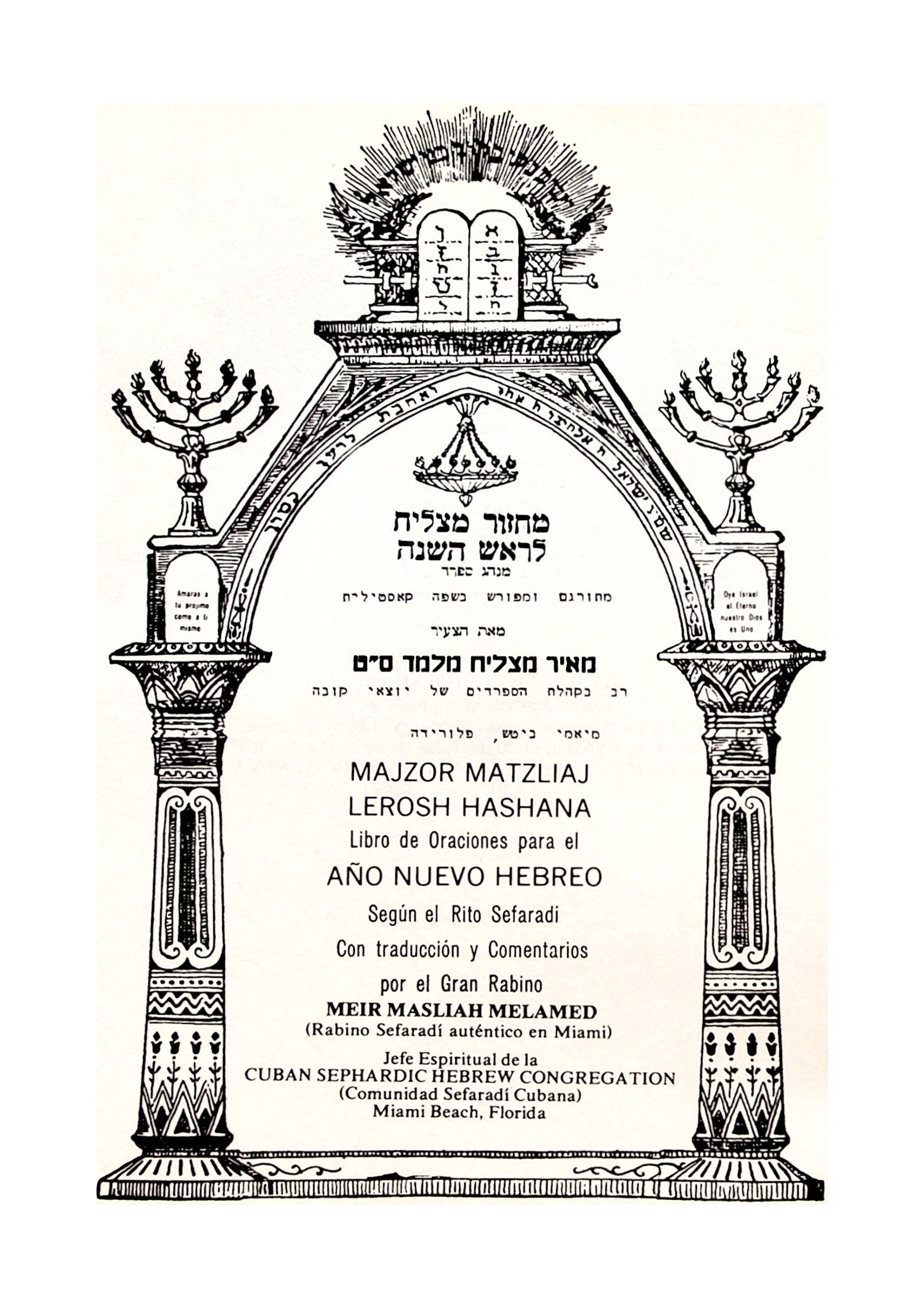
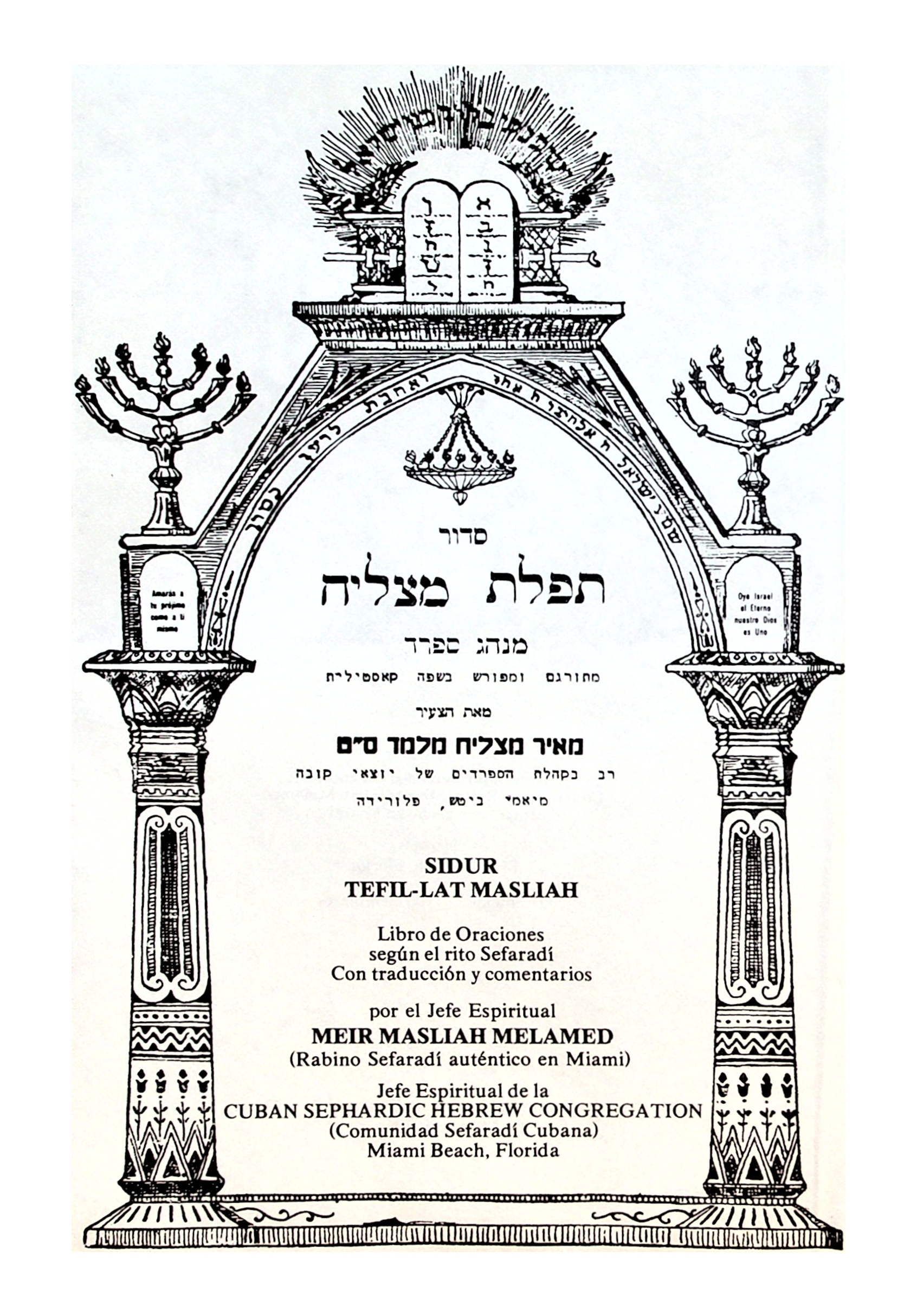
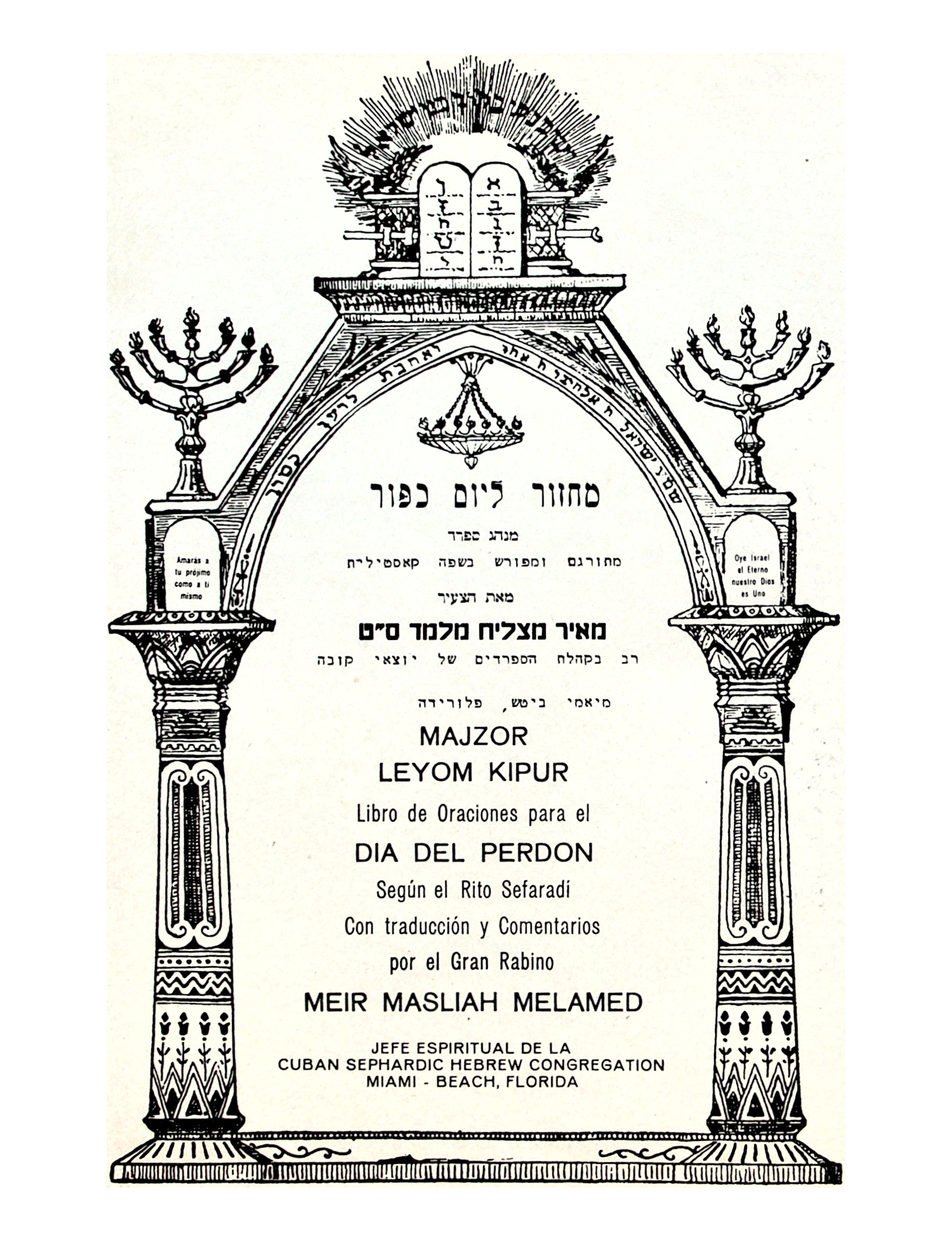

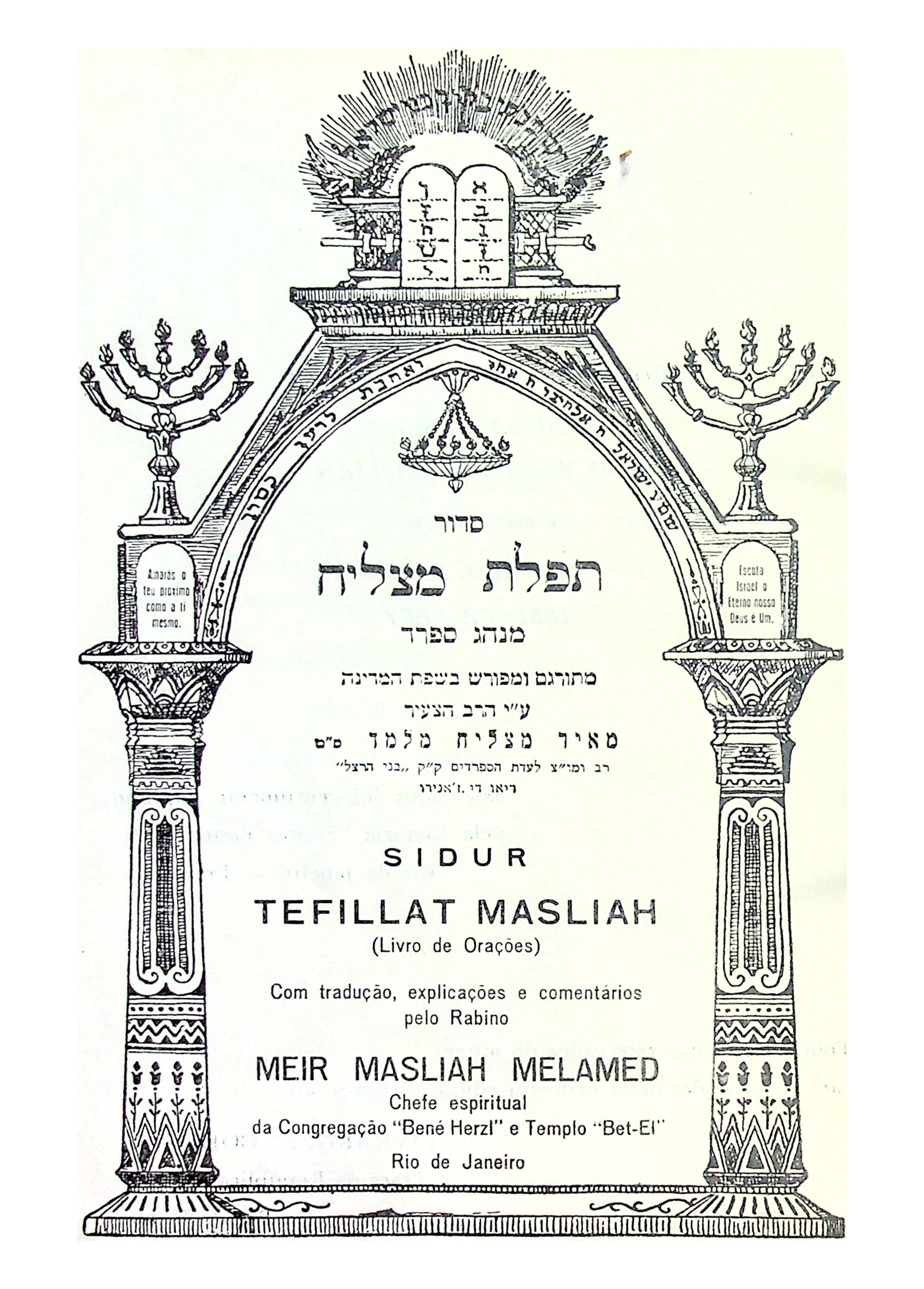


Leave a Reply